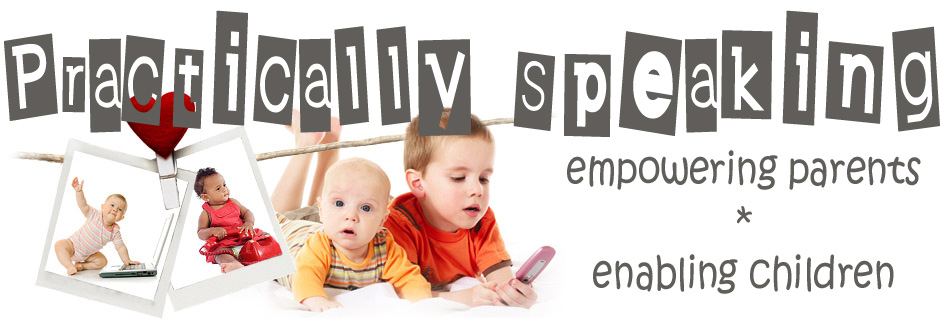"Wherever you are, be all there." ~Jim Elliot.
It seems as if little children were deliberately put together in such a way that everything about them slows adults down. Why is that?
Well, the obvious reason is that they develop better when the important adults in their lives are not only in the room, but also in the moment. The more we talk with them and help to interpret their experiences for them, the more they learn.
Adults also benefit. Slowing down may not seem like a blessing at first, but children make adults spend time on many things that would otherwise mostly go by unnoticed. Then, years later, many older people look back and realize that those little things were really the big things.
As Angela Schwindt once said, "While we are teaching our children all about life, they are teaching us what life is all about."
Best wishes for the holiday season!
Why did I DO that?
"Why did you grab that toy? Why did you hit your sister? Why is there spaghetti in your hair?"
We ask toddlers these questions and they never come up with an answer. Why? Because they live in the moment. Their brains aren't wired to the point where they can think about their own thinking.
This ability develops over time. By the time he's about 4-5 years old, your child will be able to think and talk about his thoughts and explain why he did something. He'll even be able to imagine what other people are thinking and put himself in their shoes.
That's when parents and children can (and should) have a lot of
fun talking about why a child likes this or that and why he chooses one thing
and not the other. You can even ask your 4 year old's opinion about house
rules!
Toddlers, on the other hand, simply experiment with all kinds of
behaviours. As they do things over and over again, and important adults in
their lives consistently respond either positively or negatively, they learn
about certain behaviours being either acceptable or unacceptable.
So, for now, asking your toddler to explain himself only serves
to overwhelm him. And, depending on your tone of voice, the message that you're
sending may very well be: "You clearly weren't THINKING when you did that!
I cannot believe how STUPID you are!"
Everyday may not be a good day, but ...
Today, only hours after the passing of Mr. Nelson Mandela, we
can look back on what he stood for and learn so much. If we learn nothing else,
let's take from his example that forgiveness is a gift that we give not only to
ourselves, but also to our children.
We live in a broken world. The choices we make about whether or
not to forgive people who wronged us in the past can either marinate our
children in bitterness as they spend their childhood in our homes, or give them
light and hope and a future. Let's, like the father of our Rainbow Nation,
choose freedom.
Subscribe to:
Posts (Atom)










